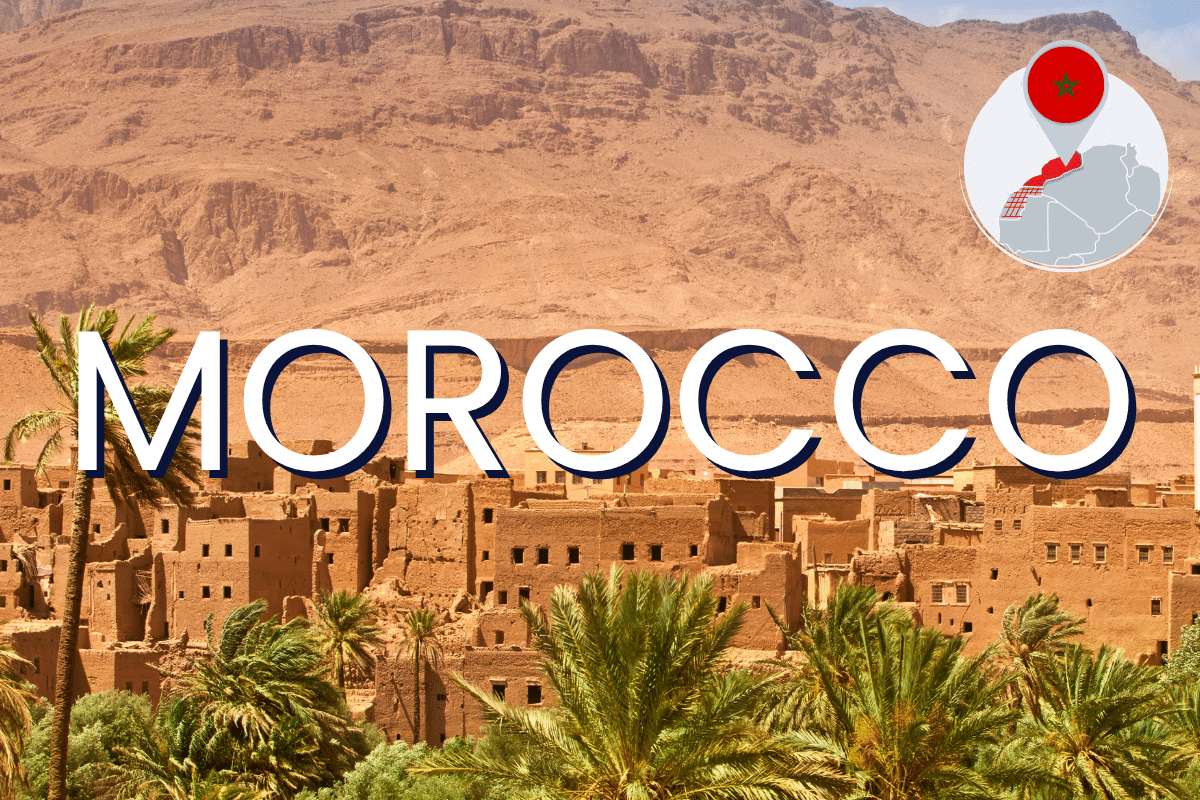
“Catalysts for Change: Voices from TAP-EDM Partnerships” Series
In Morocco, short-term technical assistance through the TAP-EDM initiative, in collaboration with the Moroccan Competence Center for Climate Change (4C Maroc), strengthened national capacity to address the growing impacts of climate change. Led by Dr. Raja Chefil, then Director General of 4C Maroc, the partnership with Canadian experts supported three pioneering initiatives: a climate-risk mapping exercise for northern provinces, a training program for young climate negotiators, and the first national study examining the links between gender and climate. Together, these efforts helped advance Morocco’s gender-responsive and climate-resilient development strategies.The TAP program is funded by the Government of Canada through Global Affairs Canada and implemented by Alinea International.
Background
Due to its geographical location, Morocco is highly vulnerable to the effects of climate change. The country is already experiencing longer droughts, shifting rainfall patterns, and growing water scarcity. The severe 2015 drought had a major impact on harvests and the national economy.This vulnerability is heightened by Morocco’s dependence on agriculture, fisheries, and tourism — sectors that are all directly affected by climate change. Acknowledging these challenges, the Government of Morocco sought Canada’s support to integrate gender and climate considerations into its natural resource conservation and climate-resilient agriculture strategies.
In response, Dr. Raja Chefil, then Director General of the Moroccan Competence Center for Climate Change (4C Maroc), played a leading role. Under her leadership, the Rabat-based national platform partnered with Alinea International through Canada’s Technical Assistance Partnership (TAP), funded by Global Affairs Canada. Together with Canadian experts Eddy Perez, André-Yanne Parent, Magali Troin, and Adrien Lambert, Dr. Chefil led three groundbreaking initiatives: a climate-risk mapping exercise for northern provinces, a training program for young climate negotiators, and the first in-depth national study on gender–climate linkages. These efforts produced tangible outcomes, including a Gender Action Plan for 4C Maroc, a training module on climate negotiations, and a pilot adaptation and resilience strategy for the province of Tétouan.
Dr. Raja Chefil‘s Story
Before this partnership, Moroccan public policies had no structured analysis connecting gender and climate. National adaptation plans and climate strategies were largely gender-neutral. Through this initiative, new inclusive frameworks and gender-sensitive methodologies were introduced, closing a major policy gap and strengthening long-term institutional capacity. For Dr. Chefil, two parts of the project proved particularly transformative: integrating gender into climate policy and developing the Tétouan climate-risk map.
“The gender analysis of national policy documents was truly groundbreaking,” she recalls.
This experience marked a turning point in her career. Since then, she has joined new continental initiatives on gender and climate and continues to advocate for stronger integration of both fields. Her work has also inspired others — following a speech she gave at the launch of a gender and climate initiative, a Moroccan parliamentarian approached her and said:
“You’ve inspired me to draft a bill to safeguard women’s rights in the context of climate change. Can you help me?”
For Dr. Chefil, this moment captured the ripple effect that technical collaboration can have , turning an academic study into concrete policy action. Meanwhile, the Tétouan climate-risk mapping achieved its strategic goal: demonstrating both the feasibility and value of such exercises. As the first comprehensive climate-risk assessment in Morocco, it covered coastal, mountain, and agricultural areas, revealing diverse vulnerabilities such as marine flooding. Its success has since generated strong national interest and requests for similar assessments in other regions.
The training for young negotiators continues to deliver results as well. Many participants now support Morocco’s official delegations at international climate conferences. They stay in touch through WhatsApp and LinkedIn networks and credit the program for helping them join national teams at global climate events.
Conclusion
Dr. Chefil’s journey shows how targeted funding, high-quality technical assistance, and strategic collaboration can spark systemic and lasting change.
The initiative has: strengthened 4C Maroc’s institutional capacity; introduced Morocco’s first formal exploration of gender–climate linkages; and inspired a new generation of climate leaders and policymakers.
Today, the ripple effects continue. Alumni of the program are emerging as leaders, new projects are being built on 4C’s foundations, and Dr. Chefil herself has deepened her expertise in gender and climate.
“This project was a true spark — a catalyst for new vocations,” she says.
Beyond its technical achievements, the initiative helped spark a movement grounded in local relevance, gender equality, and climate resilience — showing how demonstrating what’s possible can lead to real institutional transformation.
